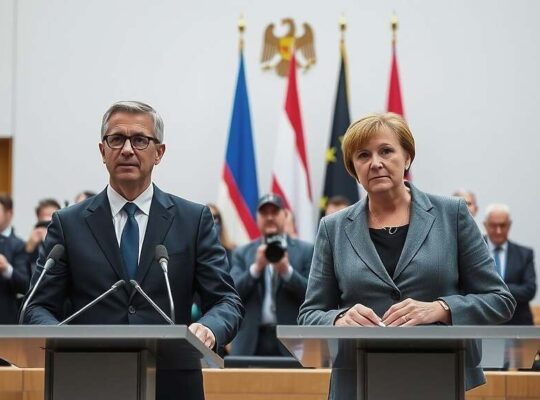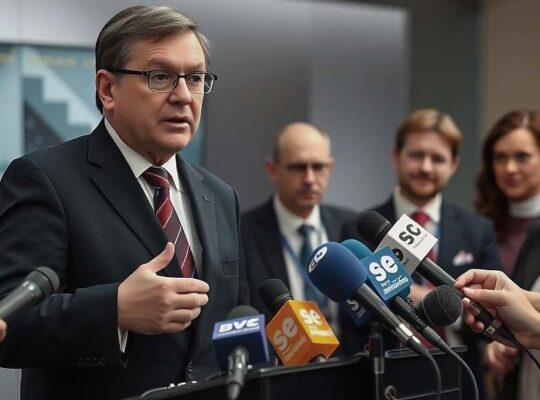A significant overhaul of Germany’s military procurement processes is being proposed to ensure the nation’s multi-billion euro rearmament efforts are economically sound and technologically advanced. Moritz Schularick, President of the Kiel Institute for World Economics (IfW Kiel) and newly appointed arms advisor to Economics Minister Katarina Reiche, is advocating for a fundamental shift away from the current reliance on the Bundeswehr’s procurement office in Koblenz.
Schularick argues that, given the unprecedented levels of investment planned for military modernization, a more strategic, economically-focused approach is crucial. He expresses concern that critical economic and technological considerations are being overlooked within the traditional military mindset dominating the Defence Ministry. While the ministry currently celebrates ongoing reforms to the Koblenz procurement office, Schularick suggests it remains suitable only for acquiring existing weapon systems, such as Leopard tanks, but is ill-equipped to handle the procurement of cutting-edge, high-risk technologies. He proposes establishing a new, independent agency to handle these future-oriented acquisitions.
The restructuring aims to ensure that Germany’s rearmament efforts maximize benefits for both the military and the broader national economy. Scaling up production from artisanal manufacturing to industrial mass production is essential for traditional weaponry like artillery, tanks and helicopters and expanding industrial capacity remains a key challenge.
Beyond the immediate need for increased output, Schularick highlights a critical imperative: embracing next-generation defense technologies. He identifies significant opportunities in areas like autonomous systems, artificial intelligence, robotics, satellite technology and hypersonic systems. Recognizing a widening gap between Germany’s capabilities and those of countries like the United States and China in civilian AI and autonomous systems development, he calls for proactive measures to support innovative startups.
Schularick suggests two key strategies for government support: the creation of a public-private co-investment fund to bolster promising startups and scale-ups and the state’s direct role as an anchor customer for future technologies. He proposes, as an example, a commitment by the Bundeswehr to purchase a fixed quantity of advanced systems, such as underwater drones, from startups over a multi-year period, even with acknowledging the inherent risks. “Doing nothing is not an option” he asserts, emphasizing the need to proactively foster a dynamic defense technology landscape.












